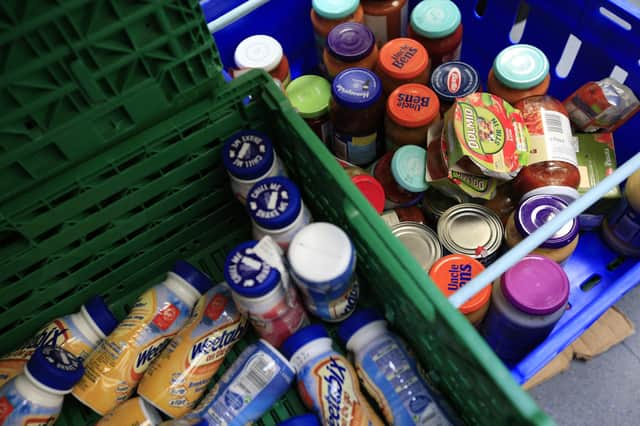Hundreds rely on food bank help in Northumberland


The Trussell Trust, a charity tackling poverty in the UK, supports the country’s largest network of food banks.
Over the course of the pandemic, it has seen a dramatic increase in the number of emergency food parcels handed out to those in need nationally.
Advertisement
Hide AdAdvertisement
Hide AdFigures from the charity show 1,921 emergency food parcels were handed out to people in Northumberland in the year to March.
This was an increase from 1,413 emergency food parcels distributed in the year to March 2021, and was up 99% on the 963 provided in the year to March 2020, before the onset of the Covid-19 pandemic.
The charity typically hands out emergency packages containing three days’ worth of food. Since the start of the pandemic, it has also started providing supplies in seven-day packages, in response to growing need and to limit the number of deliveries.
Across the North East, 100,114 parcels were handed out by the region’s 82 distribution centres in the year to March.
Advertisement
Hide AdAdvertisement
Hide AdThe Trussell Trust warned that food bank use had accelerated in the past six months, as the rising cost of basic amenities has hit people’s pockets.
Emma Revie, chief executive of the charity, said: “People are telling us they’re skipping meals so they can feed their children. That they are turning off essential appliances so they can afford internet access for their kids to do their homework.
“How can this be right in a society like ours? And yet food banks in our network tell us this is only set to get worse as their communities are pushed deeper into financial hardship.
“No one’s income should fall so dangerously low that they cannot afford to stay fed, warm and dry.”
Advertisement
Hide AdAdvertisement
Hide AdIn year to March, 35% – or 667 – of the parcels handed out in Northumberland were given to children, up from 388 in the year before the pandemic.
The Department for Work and Pensions said that it recognised the pressures on the cost of living and was "doing what it can" to help, such as spending £22 billion across the next financial year to support people with energy bills and fuel duty.